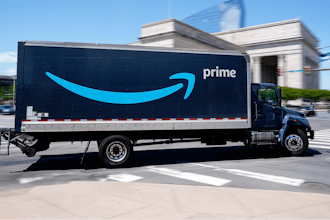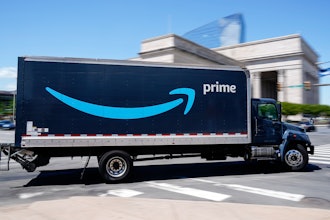
The WBSRocks e-commerce roundtable features industry experts sharing their perspectives on issues critical to the manufacturers' e-commerce journey. In this issue, we ask: why personalization strategies are crucial to creating a sticky effect with your customers.
Most people think of personalization strategies as hand-written letters or their names printed on the product. Some e-commerce practitioners, on the other hand, might suggest gathering as much personalized information as possible such as their gender, age, etc., to tailor the experience. But personalization is much deeper than that. Personalization requires you to have a deep understanding of your customers and their journeys. The deeper the understanding, the more personalized the experience will be. And the more personalized the experience, the more sticky effect your customers will have with your brand.
Sam Gupta, Principal Consultant, ElevatIQ
A personalized journey begins when they enter their search term on Google and create an experience precisely as they would expect throughout their entire journey. And it requires you to personalize the experience for your customers even before you know anything about them. So, you might wonder how you can personalize the experience when you don't know who you are personalizing the experience for? Well, this is where a deep understanding of your customers and channels is super helpful.
To illustrate further, let's take an example of how you can personalize without collecting any personalizable information about them: how would you feel if you searched for a pair of sports shoes but then routed to a site where they sold only the formal shoe? You would feel as if the site wasted your time. You would probably register the website's domain in your head not to click on that site again as that doesn't offer the relevant information to your expectations.
You would probably have the same feeling if you were presented with an offer that is entirely unrelated to you. For example, if you own an HP printer and if the site has pop-ups everywhere with Epson cartridges, wouldn't you feel as if you are getting spammed? When your customers visit your site, they measure you based on how quickly they can find the relevant information each time without entering the same information they may have already provided.
Also, customizing the journeys is not a one-time activity. It requires you to keep studying the behavior on an ongoing basis and make changes as the consumer preferences change over time. It's almost unfair to e-commerce brands as the consumers implicitly assume the experience to be tailored, but they might not be as friendly in sharing their information. And this is where some of the newer technologies, such as AI, may be handy, which can forecast the remaining dataset based on the partial data available. It could help provide the personalized experience and recommendations without threatening forms that ask for personalized information that some users may perceive as alarming.
Kristina Harrington, President, GenAlpha
If you are a B2B manufacturing company, then you've been building trusted relationships with your customers for as long as you've been in business. That established trust is why they keep returning to you for your products, services, and experience. As you expand your sales channel online, implementing eCommerce features that maintain a level of personalization and ideally make your customer's job easier are critical for continued success.
Most often, for B2B companies, the greatest level of personalization is available for registered repeat users who have created a secure login. Depending on your chosen eCommerce solution, this gives them access to the following:
- Pay on account and ability to see their agreed-upon pricing
- Default bill to and ship to information for easy order entry
- Order history, order status, and re-order
- Ability to download and/or pay invoices online
- Manage their account details like preferred language and credit card information
- Recently viewed items
- Past product favorites
- Creation of shopping lists
- Product recommendations
- Auto re-orders or subscription orders
Additionally, email is a great way to personalize the eCommerce experience. Customers will typically appreciate the following:
- A welcome email after new account creation
- Confirmation email post order or quote creation
- Delivery confirmation email after the product has shipped
- Abandoned cart emails
Personalization is evolving. The key is to start using eCommerce to capture data over time that your systems will use to help support greater levels of personalization in the future.






















